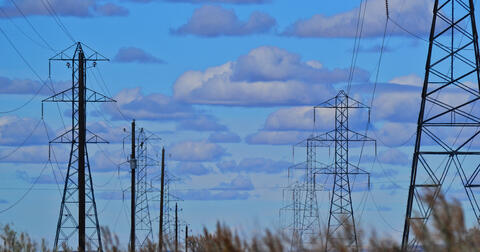Commentary
California’s energy struggles could be Michigan's future
Wanting an energy transition is one thing; enacting it before you’re ready is quite another.

California and Michigan have both had energy struggles this week. Neither point toward a future where most cars are EVs. | Photo by
Brett Sayles on Pexels
California’s energy struggles are a cautionary tale for Michigan.
First, California issued a rule banning the sales of new gas-powered vehicles by 2035. The press spread the headline far and wide, as a symbol of progress.
Then, as so-called extreme heat brought higher demand for energy, the state turned around and punished electric vehicle owners.
Facing the possibility of blackouts over Labor Day weekend, the operator of California’s electric grid is requesting voluntary energy conservation. Public officials are asking Californians to avoid charging their electric vehicles, to the extent possible.
But it’s not just big-energy items they’re asking the public to cut back on. There are also small household items, the things a normal energy grid should not struggle with: stoves, ovens, dishwashers, washing machines and dryers. California’s grid operator took to Twitter on Wednesday to make that request.
If California’s energy grid can't handle common home appliances in 2022, and it can’t spare enough to charge the electric vehicles it has now, how will it handle the predicted growth of EVs in 2035? Why does the state issue new rules long before it knows that this transition is feasible, or affordable? Or that the grid will be ready?
Michigan, too, recently had its energy struggles. At the peak of some very minor storms and winds, about 380,000 DTE Energy customers in Southeast Michigan were without power.
If Michigan’s shaky energy grid can’t handle thimblefuls of rain, or the blowing wind, how will it be able to accommodate a future where many homes will have EV charging ports? Will its leaders have the discipline to wait until the infrastructure is ready?
Or will they seek headlines, transition prematurely to green energy, and ask the people of Michigan to unplug their toasters?
|

California’s energy struggles could be Michigan's future
Wanting an energy transition is one thing; enacting it before you’re ready is quite another.
California’s energy struggles are a cautionary tale for Michigan.
First, California issued a rule banning the sales of new gas-powered vehicles by 2035. The press spread the headline far and wide, as a symbol of progress.
Then, as so-called extreme heat brought higher demand for energy, the state turned around and punished electric vehicle owners.
Facing the possibility of blackouts over Labor Day weekend, the operator of California’s electric grid is requesting voluntary energy conservation. Public officials are asking Californians to avoid charging their electric vehicles, to the extent possible.
But it’s not just big-energy items they’re asking the public to cut back on. There are also small household items, the things a normal energy grid should not struggle with: stoves, ovens, dishwashers, washing machines and dryers. California’s grid operator took to Twitter on Wednesday to make that request.
If California’s energy grid can't handle common home appliances in 2022, and it can’t spare enough to charge the electric vehicles it has now, how will it handle the predicted growth of EVs in 2035? Why does the state issue new rules long before it knows that this transition is feasible, or affordable? Or that the grid will be ready?
Michigan, too, recently had its energy struggles. At the peak of some very minor storms and winds, about 380,000 DTE Energy customers in Southeast Michigan were without power.
If Michigan’s shaky energy grid can’t handle thimblefuls of rain, or the blowing wind, how will it be able to accommodate a future where many homes will have EV charging ports? Will its leaders have the discipline to wait until the infrastructure is ready?
Or will they seek headlines, transition prematurely to green energy, and ask the people of Michigan to unplug their toasters?
Michigan Capitol Confidential is the news source produced by the Mackinac Center for Public Policy. Michigan Capitol Confidential reports with a free-market news perspective.